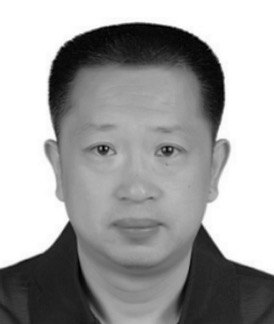DING Wei

Dr. DING, Wei
Professor and Chair, Department of Biochemistry and Molecular Biology
Associate Director, Cancer Institute of Capital Medical University
Dr. Ding graduated from Beijing Medical University and was appointed as a teaching assistant in 1991 at the Department of Biochemistry and Molecular Biology in the same university. He studied abroad in Department of Anatomy and Cell Biology in the University of Iowa and received his Ph.D. title. In 2006, he joined Capital Medical University as a professor in Biochemistry and Molecular Biology.
The scope of Dr. Ding’s research is mainly focused in the fields of cancer genetics and gene therapy. He is experienced in the vector design and application of adeno-associated viral vectors. His studies include the intracellular trafficking of infected viruses and method development for the improvement of AAV transduction. His ongoing research project is related to the genetic analysis of chemo-resistance in metastatic cancers.
Dr. Ding’s research interest is in the fields of cancer genetic and gene therapy. His latest research
project is focused in the genetic and drug resistance related phenotypic analyses of human glioma cells, as well as the development of novel adeno-associated viral vectors with improved targeting capacities. We seek collaborations in the field of cancer genetic analyses using the next generation sequencing technologies, and the study involving migration and metastasis in relation to drug resistance of glioma cells.
Publications
1. Yao T, Zhang CG, Gong MT, Zhang M, Wang L, Ding W. Decorin-mediated inhibition of the migration of U87MG glioma cells involves activation of autophagy and suppression of TGF-β signaling. FEBS Open Bio. 2016;6(7):707-19.
2. Bai X, Huang W, Zhang C, Niu J, Ding W. Discovery of a Regulatory Motif for Human Satellite DNA Transcription in Response to BATF2 Overexpression. Anticancer Res. 2016 ;36(3):1203-10.
3. Li H, Zhang FL, Shi WJ, Bai XJ, Jia SQ, Zhang CG, Ding W. Immobilization of FLAG-Tagged Recombinant Adeno-Associated Virus 2 onto Tissue Engineering Scaffolds for the Improvement of Transgene Delivery in Cell Transplants. PLoS One. 2015 10(6):e0129013.
4. Yan SF, You HJ, Xing TY, Zhang CG, Ding W. HDAC inhibitor sodium butyrate augments the MEF2C enhancement of Nampt expression under hypoxia. Curr Pharm Des. 2014;20(11):1604-13.
5. Zhang YB, Gong JL, Xing TY, Zheng SP, Ding W. Autophagy protein p62/SQSTM1 is involved in HAMLET-induced cell death by modulating apoptosis in U87MG cells. Cell Death Dis. 2013;4:e550.

